The Old Curiosity Club discussion
The Lazy Tour of Two Idle ...
>
Chp. 01 - 03
date newest »
newest »
 newest »
newest »
The second chapter is basically a short story Collins would publish later as The Long White Hand, and it finds its way into the travelogue when Goodchild has a doctor look after his injured friend Idle. Grasping the opportunity to accompany the doctor home – sitting with his friend is not Mr. Goodchild’s conception of true idleness –, he meets the doctor’s assistant, a certain Mr. Lorn, a man of a very sinister and melancholy appearance, who, however, is obviously attached in great loyalty to his master:
Mr. Goodchild is so interested in this man that the doctor finally agrees to tell him a story, after sending off his assistant to Mr. Idle. This story took place many years ago, when young Halliday, the son of a remote friend of the Doctor’s, tried to find a room in Doncaster during the races. Nothing was available, and finally he agreed to rent one bed in a double room, the other bed already being occupied. Before long, however, Halliday realizes that the man in the other bed is actually dead, but he is too proud to have the landlord have the better of him and therefore decides to stay in the room. We now get an atmospheric description of how the young man is slowly consumed by fear and terror but still tries to keep a stiff upper lip, even though he knows that he will definitely not sleep a wink that night. His horror intensifies when he notices that the corpse’s posture has changed, and before long, he has a doctor sent for, who happens to be his old acquaintance Dr. Speddie, who stands in for a colleague of his. The doctor notices that there are faint sparks of life in the man they have all supposed to be dead, and employing his art, he brings him round and back to life.
Now, however, we get quite a heap of coincidences served to us: The stranger is not too happy about his coming back to life again, and we soon find out that he is not of legitimate birth and therefore has no real name at all – a topic that Collins would deal with in one of his major novels in 1862 –, and what is more, the Doctor seems to work out from the strange and reticent behaviour of the stranger that the name Halliday is familiar to him. In other words, it is very likely that he has been brought back to life thanks to his half-brother’s staying in that room and calling for a doctor. But the coincidences do not stop here – I wish they had – because it also becomes clear that both the half-brothers are in love with the same woman without knowing each other. Seeing now that his legitimate half-brother will earn all his father’s wealth (whereas he himself will be likely to remain poor and obscure), the stranger seems to be determined that his richer half-brother must marry that woman for he is able to offer her wealth and a name.
The story covers the younger half-brother’s wedding with the girl and her death three years later, as well as her deathbed confession to Doctor Speddie in which she tells him that she was promised to another man, a medical student, who, however, suddenly stopped answering her letters.
What do you think about this story of the carefree young brother’s first meeting with death, and all the coincidences that ensue? Do you think it a clever device to include stand-alone stories different in tone and atmosphere in this travelogue, to hook the reader’s attention? Or are they too serious and dark to go with the rest of the tale?
”A man of a most remarkable appearance. Much older than Mr. Goodchild had expected, for he was at least two-and-fifty; but, that was nothing. What was startling in him was his remarkable paleness. His large black eyes, his sunken cheeks, his long and heavy iron-grey hair, his wasted hands, and even the attenuation of his figure, were at first forgotten in his extraordinary pallor. There was no vestige of colour in the man. When he turned his face, Francis Goodchild started as if a stone figure had looked round at him.”
Mr. Goodchild is so interested in this man that the doctor finally agrees to tell him a story, after sending off his assistant to Mr. Idle. This story took place many years ago, when young Halliday, the son of a remote friend of the Doctor’s, tried to find a room in Doncaster during the races. Nothing was available, and finally he agreed to rent one bed in a double room, the other bed already being occupied. Before long, however, Halliday realizes that the man in the other bed is actually dead, but he is too proud to have the landlord have the better of him and therefore decides to stay in the room. We now get an atmospheric description of how the young man is slowly consumed by fear and terror but still tries to keep a stiff upper lip, even though he knows that he will definitely not sleep a wink that night. His horror intensifies when he notices that the corpse’s posture has changed, and before long, he has a doctor sent for, who happens to be his old acquaintance Dr. Speddie, who stands in for a colleague of his. The doctor notices that there are faint sparks of life in the man they have all supposed to be dead, and employing his art, he brings him round and back to life.
Now, however, we get quite a heap of coincidences served to us: The stranger is not too happy about his coming back to life again, and we soon find out that he is not of legitimate birth and therefore has no real name at all – a topic that Collins would deal with in one of his major novels in 1862 –, and what is more, the Doctor seems to work out from the strange and reticent behaviour of the stranger that the name Halliday is familiar to him. In other words, it is very likely that he has been brought back to life thanks to his half-brother’s staying in that room and calling for a doctor. But the coincidences do not stop here – I wish they had – because it also becomes clear that both the half-brothers are in love with the same woman without knowing each other. Seeing now that his legitimate half-brother will earn all his father’s wealth (whereas he himself will be likely to remain poor and obscure), the stranger seems to be determined that his richer half-brother must marry that woman for he is able to offer her wealth and a name.
The story covers the younger half-brother’s wedding with the girl and her death three years later, as well as her deathbed confession to Doctor Speddie in which she tells him that she was promised to another man, a medical student, who, however, suddenly stopped answering her letters.
What do you think about this story of the carefree young brother’s first meeting with death, and all the coincidences that ensue? Do you think it a clever device to include stand-alone stories different in tone and atmosphere in this travelogue, to hook the reader’s attention? Or are they too serious and dark to go with the rest of the tale?
The beginning of Chapter 3 shows Mr. Goodchild’s first signs of wanting to go to Doncaster for the races – I read somewhere that actually Dickens went to Doncaster with a view to meeting Ellen Ternan there, but this is, of course, not mentioned anywhere, nor even hinted at, in the story –, whereas Mr. Idle remonstrates that a man confined to sofa is not in a racing condition. Accordingly, Goodchild suggests going to a watering place first in order to give his friend the opportunity to recover, and after some research, his choice falls on Allonby.
When they arrive there, however, they notice that the place is not as lively and big and able to offer change and entertainment as they had anticipated. Apparently, the town is still in its watering place infancy, but it already offers the two friends the chance to look at the sea and eat some shrimps. Therefore, the words, “There is the sea, and here are the shrimps” soon becomes some kind of catchphrase between the two travellers. In a way, there is nothing happens in this chapter, so it is a truly lazy one, but I found it very entertaining indeed because of Mr. Idle’s repetitive attempts at making Mr. Goodchild admit that his choice of Allonby was a failure and that the place is very boring. Just consider what Mr. Goodchild, as a reaction, says in praise of the fishermen of Allonby:
There is also another endearing passage when Idle is reclining on his sofa and musing on how ill it has always served him in his life when, from whatever misguided judgment or lack of principle, he neglected his adherence to the dogma of idleness. It reminded me somewhat of Blaise Pascal, who once said that a lot of the bad things that happen in the world could be avoided if people learned simply to sit down calmly and peacefully in a room once in a while. Be that as it may, Mr. Idle also throws in some little satirical remarks such as:
At least, one may say, Mr. Idle sins in good company. And is there not a lot we can learn from him?
How are you enjoying this little-known work so far?
When they arrive there, however, they notice that the place is not as lively and big and able to offer change and entertainment as they had anticipated. Apparently, the town is still in its watering place infancy, but it already offers the two friends the chance to look at the sea and eat some shrimps. Therefore, the words, “There is the sea, and here are the shrimps” soon becomes some kind of catchphrase between the two travellers. In a way, there is nothing happens in this chapter, so it is a truly lazy one, but I found it very entertaining indeed because of Mr. Idle’s repetitive attempts at making Mr. Goodchild admit that his choice of Allonby was a failure and that the place is very boring. Just consider what Mr. Goodchild, as a reaction, says in praise of the fishermen of Allonby:
”Beginning to recover his temper at about this point, Mr. Goodchild voluntarily reported that if you wanted to be primitive, you could be primitive here, and that if you wanted to be idle, you could be idle here. In the course of some days, he added, that there were three fishing-boats, but no rigging, and that there were plenty of fishermen who never fished. That they got their living entirely by looking at the ocean. What nourishment they looked out of it to support their strength, he couldn't say; but, he supposed it was some sort of Iodine.”
There is also another endearing passage when Idle is reclining on his sofa and musing on how ill it has always served him in his life when, from whatever misguided judgment or lack of principle, he neglected his adherence to the dogma of idleness. It reminded me somewhat of Blaise Pascal, who once said that a lot of the bad things that happen in the world could be avoided if people learned simply to sit down calmly and peacefully in a room once in a while. Be that as it may, Mr. Idle also throws in some little satirical remarks such as:
”Having no interest in the Church, he appropriately selected the next best profession for a lazy man in England--the Bar. Although the Benchers of the Inns of Court have lately abandoned their good old principles, and oblige their students to make some show of studying, in Mr. Idle's time no such innovation as this existed. Young men who aspired to the honourable title of barrister were, very properly, not asked to learn anything of the law, but were merely required to eat a certain number of dinners at the table of their Hall, and to pay a certain sum of money; and were called to the Bar as soon as they could prove that they had sufficiently complied with these extremely sensible regulations.”
At least, one may say, Mr. Idle sins in good company. And is there not a lot we can learn from him?
How are you enjoying this little-known work so far?
 I'm actually enjoying it very much! Thank you so much Tristram for your precis. I agree, this is a difficult one to summarise, and I think it's partly because the entire piece is so tongue in cheek.
I'm actually enjoying it very much! Thank you so much Tristram for your precis. I agree, this is a difficult one to summarise, and I think it's partly because the entire piece is so tongue in cheek.You ask whether it is a good idea to "include stand-alone stories different in tone and atmosphere in this travelogue", and I feel that it reflects Charles Dickens's own way of moving from dark to light in his novels. When there is a hairraising, terrifying scene, it it probably followed by one of his comic absurdities. Wilkie Collins tends not to do that!
I'm delighting in identifying the writing. Largely it is Dickens. I think, who writes what I think of as the "linking" pieces, and chapter 2 is entirely Collins. So specifically:
CHAPTER 1:
The fingerprint of Dickens is quite obvious from the start, even by the naming of these two "misguided young men". Mr. Thomas Idle, a consummate idler, is a satirical portrayal of Wilkie Collins, whilst Mr. Francis Goodchild, who puts an inordinate effort into everything - even being idle - clearly indicates the frenetic activity of Charles Dickens.
The description of the climbing and descent from Carrock Fell made me laugh, with its verisimilitude. So often we have been in a similar position in the Lake District (though I'm not sure which of us was whom!) There are so many parts to quote, but I particularly enjoyed the "glowing, shining" Dickens:
"Mr. Goodchild looked eagerly at the top of the mountain, and, feeling apparently that he was now going to be very lazy indeed, shone all over wonderfully to the eye, under the influence of the contentment within and the moisture without. Only in the bosom of Mr. Thomas Idle did Despondency now hold her gloomy state.
Dickens has perfectly and ironically captured both how he feels about himself, allied with the view others have of him. And the moisture ... well it does seem to rain almost incessantly in the Lake District!
But I will remember with fondness the image I have in my mind of Dickens, with his "shining face", striding along confidently, with a limping, bedraggled Collins more than a few steps behind. So often we like to feel that we are walking in the footsteps of our favourite authors, or are privileged to visit their homes. This was a surprisingly refreshing instance of just that.
CHAPTER 2:
Within this is a ghost story which is clearly penned by Wilkie Collins. It has all his trademark concerns: mistaken identity, illegitimacy, inheritance, feckless young men, a poor but industrious student, female sacrifice in marriage ... and the ghostly elements are not spooks and sprites, as Dickens would have conjured up, but something more sinister and of this world, akin to an understated Edgar Allan Poe. Motifs, such as the cloistered four poster bed, are recognisable from other stories of his. For me this has an echo of his classic A Terribly Strange Bed, although this particular bed has a dead and alive occupant. It is a gripping tale, enough to make me feel that I could not stop until I had finished reading it.
CHAPTER 3: and we are back to Dickens's unmistakable descriptions and diverting discursiveness!
By the way, I noticed with amusement, the "lazy" way you have titled this thread, Tristram, thereby putting your own spin on commenting on this particular piece :D
 Chapter 1 was kind of fun, though I did wonder why they would set out on a strenuous hike in a downpour (oh yeah... to make the story more interesting... duh). I enjoyed the description of the Inn, thinking it sounded more like the Old Curiosity Shop than the shop itself did. Had I read this a couple of years ago, I might have chosen to follow in the lazy apprentices' footsteps and visited Wigton and Allonby rather than the Keswick area. From what I've seen in my online search, though, I think being on Lake Derwentwater was a better choice; Wigton and Allonby do, indeed, seem like places where one can't help but be idle.
Chapter 1 was kind of fun, though I did wonder why they would set out on a strenuous hike in a downpour (oh yeah... to make the story more interesting... duh). I enjoyed the description of the Inn, thinking it sounded more like the Old Curiosity Shop than the shop itself did. Had I read this a couple of years ago, I might have chosen to follow in the lazy apprentices' footsteps and visited Wigton and Allonby rather than the Keswick area. From what I've seen in my online search, though, I think being on Lake Derwentwater was a better choice; Wigton and Allonby do, indeed, seem like places where one can't help but be idle.chapter 2 - I've only read one thing by Wilkie Collins (The Woman in White), so it's a bit of a challenge for me to try to determine who contributed what to this particular story. But having read Jean and Tristram's comments, I can see how they've reached their conclusions. Dickens certainly loved to insert story telling into his some of his narratives, but the story of Holliday does seem more like what I know of Collins. The uncanny coincidences, though, seem like pure Dickens! I will put The Long, White Hand on my to-read list (as well as A Terribly Strange Bed) -- or shouldn't I bother, now that I've read chapter 2 of The Lazy Apprentices? I thought it was an intriguing premise, and wondered if how I might react in similar circumstances. Frankly, I was disappointed when the story took it's turn into Coincidence World. If that was Dickens' influence, I'd love to see what Collins might do with the story on his own. I think I would have preferred that the story had gone more in the vein of The Yellow Wallpaper.
What did you think of the section in which the invalid Thomas repeatedly said, "Brother Francis, brother Francis, what do you see..." It seemed to me almost like a nursery rhyme, and didn't ring true as actual dialogue from Thomas. I wonder why our authors thought that using anaphora (a word you all taught me, thank you very much!) would be a good choice here.
My favorite character was the donkey. I wonder if he occasionally wandered over to visit Betsy Trotwood. :-) I also enjoyed the upside-down children, who reminded me of Quilp's boy, of course.
Chapter 3 brought up questions. Namely, from what kind of apprenticeship did our protagonists wander away? I think of Pip being an apprentice -- certainly not something a gentleman would be. Thomas was a barrister at some point. A law clerk might be an apprentice, but an actual attorney? While the description of his idling through law school was entertaining, it also confused me. Just what is their place in society? Based on the description, I can't help but think that Francis was a precursor to Eugene Wrayburn.
Tristram wrote: "There is also another endearing passage when Idle is reclining on his sofa and musing on how ill it has always served him in his life when, from whatever misguided judgment or lack of principle, he neglected his adherence to the dogma of idleness. It reminded me somewhat of Blaise Pascal, who once said that a lot of the bad things that happen in the world could be avoided if people learned simply to sit down calmly and peacefully in a room once in a while. ..."
As an idler in the tradition of Thomas (especially in a family of Idlers who are more like Francis), I feel a bit of a kinship with him. My mantra has been that one can't get into too much trouble if one stays on the sofa with a good book, so it's a delight to me to meet Thomas Idle (and hear of Blaise Pascal!) who share this philosophy. Almost all of my physical injuries, and the parts of my life I regret most were result of "getting out" or "getting out of my comfort zone" (a phrase I hate!). One of the only good things about getting older is that I no longer feel the need to live up to others' expectations and have learned that's it's okay to enjoy an idle life! I wonder if Thomas will still be of this mind by the end of our story.
 Mary Lou - ""Brother Francis, brother Francis, what do you see..." It seemed to me almost like a nursery rhyme,"
Mary Lou - ""Brother Francis, brother Francis, what do you see..." It seemed to me almost like a nursery rhyme,"Yes that intrigued me too. Does anyone recognise it?
 Tristram - I have tried to find the story "The Long White Hand", but can only find this as a different story by a different author. Perhaps it was a slip? I think you probably mean "The Dead Hand".
Tristram - I have tried to find the story "The Long White Hand", but can only find this as a different story by a different author. Perhaps it was a slip? I think you probably mean "The Dead Hand".I have found that the ghost story in chapter 2 was published as "Brother Morgan's Story of The Dead Hand", part of The Queen of Hearts, a novel by Wilkie Collins dating from 2 years later, in 1859. This comprises 10 short stories, linked together by a framework story. I haven't read it, but looking through it online, it is exactly the same text.
 Mary Lou - "Chapter 3 brought up questions ... Thomas was a barrister at some point. A law clerk might be an apprentice, but an actual attorney? While the description of his idling through law school was entertaining, it also confused me."
Mary Lou - "Chapter 3 brought up questions ... Thomas was a barrister at some point. A law clerk might be an apprentice, but an actual attorney? While the description of his idling through law school was entertaining, it also confused me."I just assumed this was taken from life, and exaggerated, as so much of this story is. Wilkie Collins's father had hoped he would become a clergyman, but since he showed no interest in this, encouraged him to study law as a second best. It was still a reputable job, with a good steady income. Wilkie Collins was indeed "lazy", in that he preferred to write novels and spend time with his friends. He had no interest in studying law, but did manage to finish the course and be called to the Bar (in 1851) though he never practised. So this seems an apt description of the facts:
"The third occasion on which Thomas found reason to reproach himself bitterly for the mistake of having attempted to be industrious, was connected with his choice of a calling in life. Having no interest in the Church, he appropriately selected the next best profession for a lazy man in England − the Bar."
 In all my years of reading, it is the first time I've heard the word combination "Lady Literature."
In all my years of reading, it is the first time I've heard the word combination "Lady Literature."It reminds me of taking a break from perhaps too much TV watching, as some people try to do. Thus, it seems to me, "the break" our writers are taking is not a break from the drudgery of a vocation, but from something in which they take pleasure.
To paraphrase Thomas Edison: I never needed a vacation because I loved what I did.
 So you think that "Lady Literature" means they were just taking a break from reading and writing? I feel a bit stupid if that's the case. I just assumed it was another of Dickens' illustrative names for an actual character for whom they worked! I guess Thomas and Francis are really meant to be alter egos. (Wow - I could've had a V-8!)
So you think that "Lady Literature" means they were just taking a break from reading and writing? I feel a bit stupid if that's the case. I just assumed it was another of Dickens' illustrative names for an actual character for whom they worked! I guess Thomas and Francis are really meant to be alter egos. (Wow - I could've had a V-8!)I don't know a thing about Collins except that he was friendly with Dickens. I can see how knowing some of his background and work could be very helpful when reading this collaboration.
In fact, I see in this book (more than most of Dickens' longer novels) that there are quite a few pop culture references, as well as references to their own lives. The only one I knew without having to look it up referred to Uncle Tom and Eva. Luckily I read Uncle Tom's Cabin not too long ago. Other things he's mentioned have had to be searched. The reading goes much more smoothly when you know what the heck he's talking about. :-)
 I'm pretty sure I've heard the expression "Lady Literature" before, and think the Victorians often used to personify characteristics. Think of all the sculptures and paintings of women to illustrate courage, hope etc.
I'm pretty sure I've heard the expression "Lady Literature" before, and think the Victorians often used to personify characteristics. Think of all the sculptures and paintings of women to illustrate courage, hope etc.
 I must admit that the reference in the first part intrigued me because they wrote it in the context of taking a break, which was not only a break from their vocation but a break from where they lived.
I must admit that the reference in the first part intrigued me because they wrote it in the context of taking a break, which was not only a break from their vocation but a break from where they lived.
There is much to enjoy and speculate about in the rather quirky The Lazy Tour (TLT). I can just imagine Dickens and Collins enjoying themselves over a glass of sherry or some such beverage in the hotel. I wonder if many people in the hotel knew who the two men were or speculated about the reasons they were at the races. Dickens would have been well known by name and one would think very recognizable. I wonder if they registered under their own names?
There is mystery in these pages that extends beyond the stories that are being written.
There is mystery in these pages that extends beyond the stories that are being written.
 Bionic Jean wrote: "I have found that the ghost story in chapter 2 was published as "Brother Morgan's Story of The Dead Hand", part of The Queen of Hearts, a novel by Wilkie Collins "
Bionic Jean wrote: "I have found that the ghost story in chapter 2 was published as "Brother Morgan's Story of The Dead Hand", part of The Queen of Hearts, a novel by Wilkie Collins "THANK YOU Bionic Jean!!!!
That story was completely familiar to me. I knew I had read it, and that it was "Victorian" But that's all I could remember.
I read The Queen of Hearts about a year ago, and enjoyed it very much. It's a series of short stories (ten, I think) that are linked together by a larger narrative of three elderly brothers taking care of a young woman for a time. Actually, that narrative is rather sweet and funny, even if some of the short stories are dark and sinister.
I have found, or haven't found however you look at it, either way, there aren't many illustrations for our two apprentices and their travels, but I'll share what I have. While there weren't many artists ready to give our story a try, there are quite a few different book covers, some of them rather interesting, so I'll give you some of them too. Here we go.
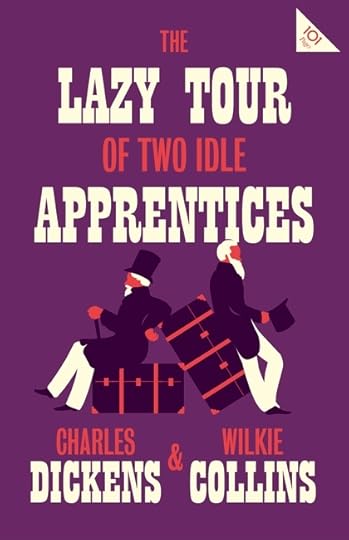
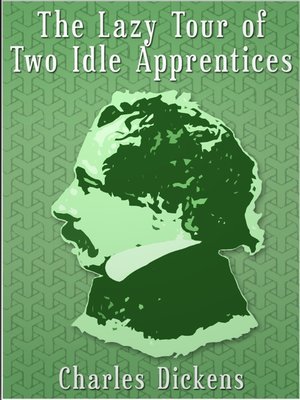
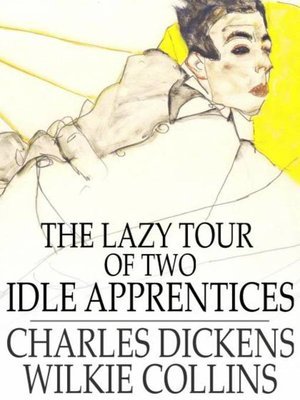
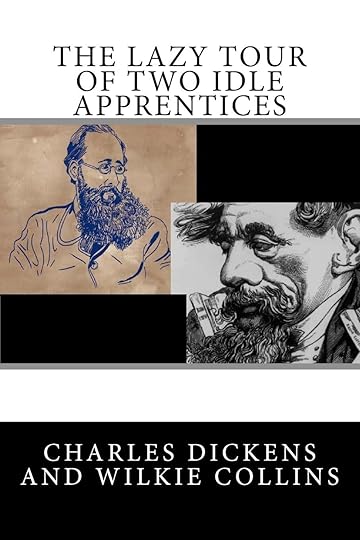




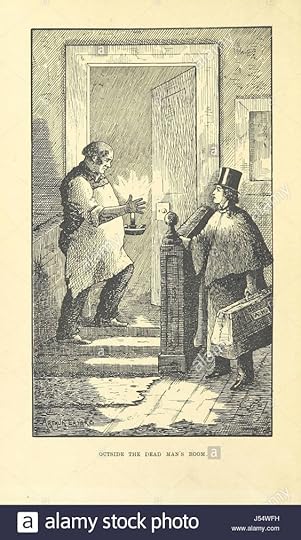
Outside the dead man's room
I don't know the artist yet.
Chapter 2
Text Illustrated:
‘The quietest man I ever came across,’ said the landlord, rubbing his fat hands stealthily one over the other. ‘As sober as a judge, and as regular as clock-work in his habits. It hasn’t struck nine, stranger, whoever he might be. ‘I’ll take the bed.’ And he handed the five shillings to the landlord, who nodded, dropped the money carelessly into his waistcoat-pocket, and lighted the candle.
‘Come up and see the room,’ said the host of The Two Robins, leading the way to the staircase quite briskly, considering how fat he was.
They mounted to the second-floor of the house. The landlord half opened a door, fronting the landing, then stopped, and turned round to Arthur.
‘It’s a fair bargain, mind, on my side as well as on yours,’ he said. ‘You give me five shillings, I give you in return a clean, comfortable bed; and I warrant, beforehand, that you won’t be interfered with, or annoyed in any way, by the man who sleeps in the same room as you.’ Saying those words, he looked hard, for a moment, in young Holliday’s face, and then led the way into the room.
Kim wrote: ""
If ever the phrase “you can’t judge by its cover” was true, these covers prove it. What are paddle wheel boats doing on the cover? To suggest travel perhaps?
OK. Cats can be cute, but these two cats are not cute and what do they, especially with such expressions, have to do with Collins and Dickens?
The two covers with the two young lads does get the idea that the book will be about two people, but the title tells us the story focuses on two people, and perhaps the word “apprentice” suggests young people, but neither Dickens nor Collins were pre-teens or even teenagers when this book was written. Don’t get those covers either.
The only cover I liked was the one that featured the heads of the two authors.
Oh my, am I becoming a grump??
If ever the phrase “you can’t judge by its cover” was true, these covers prove it. What are paddle wheel boats doing on the cover? To suggest travel perhaps?
OK. Cats can be cute, but these two cats are not cute and what do they, especially with such expressions, have to do with Collins and Dickens?
The two covers with the two young lads does get the idea that the book will be about two people, but the title tells us the story focuses on two people, and perhaps the word “apprentice” suggests young people, but neither Dickens nor Collins were pre-teens or even teenagers when this book was written. Don’t get those covers either.
The only cover I liked was the one that featured the heads of the two authors.
Oh my, am I becoming a grump??
 You're welcome Cheryl! I'm tempted to read The Queen of Hearts myself now :)
You're welcome Cheryl! I'm tempted to read The Queen of Hearts myself now :)Mary Lou - absolutely! This story is so much more enjoyable when you know some of both the authors' lives.
Kim - thank you, as ever, for the illustrations. I'm so pleased you've conquered that problem :)
Peter - I agree! None are really appropriate, but the first two are slightly better.
Perhaps the cats are added to show their independent natures, as in Rudyard Kipling's phrase "The cat ... walked by himself". But it's a bit tenuous to say the least!
In looking for illustrations, this time not doing so good, I've come across two web sites I found interesting. The first is a commentary on both authors, who wrote what, why, how type of thing. I thought in that one the person writing it made it clear that Dickens was the one in charge of this trip and this story. (scroll down for English). The next one sounds entirely the opposite. They talk about all five chapters, but I don't think there are spoilers, maybe you want to read the entire book first though. Next I have more book covers making it clear that Dickens was the more important author, making that clear by not mentioning Collins at all, but on the Collins web site it is the opposite. Dickens beats Collins overall on covers though. I wonder if that is because Dickens is the best known author. Here they are:
http://viatica.univ-bpclermont.fr/ecr...
http://www.wilkie-collins.info/books_...
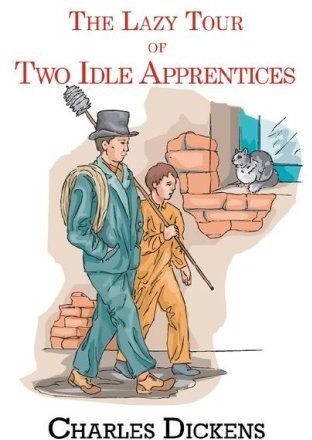
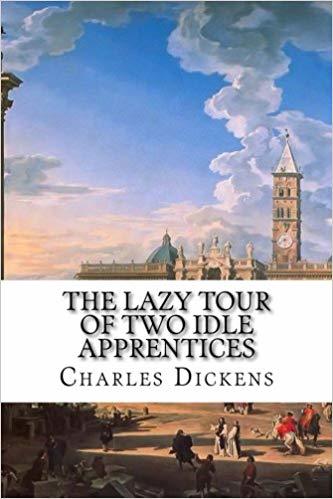
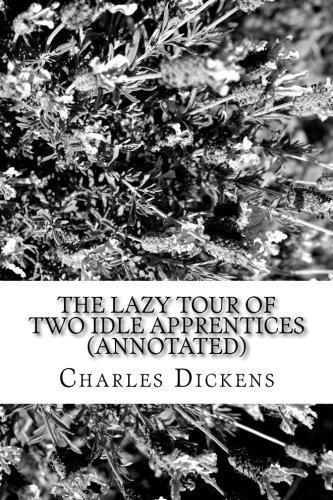
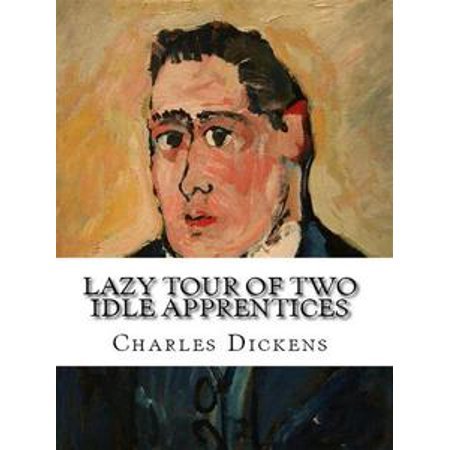

http://viatica.univ-bpclermont.fr/ecr...
http://www.wilkie-collins.info/books_...





 Thank for all this Kim :) The first link is very interesting; the second a little brief; but the covers are all completely irrelevant to the contents!
Thank for all this Kim :) The first link is very interesting; the second a little brief; but the covers are all completely irrelevant to the contents!... which of course, is not your fault at all, but makes me tempted to join the grumpy contingent here :(
I echo Bionic Jean’s comments about the links Kim kindly provided. The first one is very thorough.
 I confess that after finishing these first few chapters, I had to move on to a more entertaining novella (for me at least) and then I plan to move back to the final two chapters. I did find the second chapter with the story of the "dead" man rather interesting but I had an awful time staying awake during most of these chapters. I hope to find the next chapters more interesting.
I confess that after finishing these first few chapters, I had to move on to a more entertaining novella (for me at least) and then I plan to move back to the final two chapters. I did find the second chapter with the story of the "dead" man rather interesting but I had an awful time staying awake during most of these chapters. I hope to find the next chapters more interesting.
Peter wrote: "Oh my, am I becoming a grump??"
It's high time you were, Peter! What with all those strange book covers - Mississippi steamers and weird cats, little children as stand-ins for Dickens and Collins - no one can help becoming a grump. Except maybe, a real grump, but that only because you cannot become what you already are.
Although some of those covers are absolutely misleading, it still gives me great enjoyment to have them parade down the page. I wonder what kinds of expectations they might stir in people who have not yet read the story. Just imagine somebody wanting to read a book about cats and then getting Dickens and Collins ...
It's high time you were, Peter! What with all those strange book covers - Mississippi steamers and weird cats, little children as stand-ins for Dickens and Collins - no one can help becoming a grump. Except maybe, a real grump, but that only because you cannot become what you already are.
Although some of those covers are absolutely misleading, it still gives me great enjoyment to have them parade down the page. I wonder what kinds of expectations they might stir in people who have not yet read the story. Just imagine somebody wanting to read a book about cats and then getting Dickens and Collins ...
Bionic Jean wrote: "Tristram - I have tried to find the story "The Long White Hand", but can only find this as a different story by a different author. Perhaps it was a slip? I think you probably mean "The Dead Hand"...."
Jean,
I just checked in my Delphi Collection of Collins's works on my Kindle and yes, it was indeed a slip. The story which we find in the Lazy Tour is called The Dead Hand and not "The Long White Hand". Thanks for pointing it out!
Jean,
I just checked in my Delphi Collection of Collins's works on my Kindle and yes, it was indeed a slip. The story which we find in the Lazy Tour is called The Dead Hand and not "The Long White Hand". Thanks for pointing it out!
Bionic Jean wrote: "I'm actually enjoying it very much! Thank you so much Tristram for your precis. I agree, this is a difficult one to summarise, and I think it's partly because the entire piece is so tongue in cheek..."
Jean,
Thanks for giving me credit to a degree of originality that I cannot really claim ;-) What I mean is that I did not enter the title of our book into the Thread in a shortened form to illustrate the effects of laziness but simply because there is a certain number of letters you can type into the Thread Headings, and the fully-written title of our little book exceeds this limit. I tried several times but there is no arguing with a computer :-)
I enjoyed reading your thoughts as to which one of the two authors might have written what part of the story so far, and on the whole I agree with you. The beginning is absolutely Dickensian, the story within the story is clearly Collins, although the coincidences are large enough to have been invented by Dickens. When it comes to the mountain tour, though, I would say that it is Collins who lends this bit his auctorial voice. First of all, we see a lot of the action through the eyes of the morose and tired Mr. Idle, which gave me the impression that it must have been his real-life original that was writing these passages. Apart from that, Mr. Goodchild is described in such a positive and likeable way that I felt Dickens himself might not have written this - I cannot imagine him giving such a positive description of himself, and thought that maybe, his friend would have done that.
But that is just may tuppence, and I can't give any real proof nor would I want if I could because I think one of the attractions of this little work is that it keeps us guessing as to who wrote what. By the way, do you know of any book or Internet site which gives more reliable information on the authorship of the various parts of TLTTIA?
Jean,
Thanks for giving me credit to a degree of originality that I cannot really claim ;-) What I mean is that I did not enter the title of our book into the Thread in a shortened form to illustrate the effects of laziness but simply because there is a certain number of letters you can type into the Thread Headings, and the fully-written title of our little book exceeds this limit. I tried several times but there is no arguing with a computer :-)
I enjoyed reading your thoughts as to which one of the two authors might have written what part of the story so far, and on the whole I agree with you. The beginning is absolutely Dickensian, the story within the story is clearly Collins, although the coincidences are large enough to have been invented by Dickens. When it comes to the mountain tour, though, I would say that it is Collins who lends this bit his auctorial voice. First of all, we see a lot of the action through the eyes of the morose and tired Mr. Idle, which gave me the impression that it must have been his real-life original that was writing these passages. Apart from that, Mr. Goodchild is described in such a positive and likeable way that I felt Dickens himself might not have written this - I cannot imagine him giving such a positive description of himself, and thought that maybe, his friend would have done that.
But that is just may tuppence, and I can't give any real proof nor would I want if I could because I think one of the attractions of this little work is that it keeps us guessing as to who wrote what. By the way, do you know of any book or Internet site which gives more reliable information on the authorship of the various parts of TLTTIA?
 Tristram - No, sorry, I searched, but there is very little on authorship of the various parts. Most of the conjectures were my own, and for my review I just deduced from the known facts about both authors' lives, which are often specific as to dates, and quite revealing sometimes.
Tristram - No, sorry, I searched, but there is very little on authorship of the various parts. Most of the conjectures were my own, and for my review I just deduced from the known facts about both authors' lives, which are often specific as to dates, and quite revealing sometimes."we see a lot of the action through the eyes of the morose and tired Mr. Idle, which gave me the impression that it must have been his real-life original that was writing these passages." Yes, I think I agree there! Perhaps some of their time in the inn was spent in collaboration - or the modern idea of "brainstorming" - rather than going off having divided up the parts.
I'm not correcting you for its own sake, by the way, as you clearly had the story you referred to, and it was just a slip. (I must say I rather like your title for it though!) But if readers here then start adding the incorrect title to their to-read lists, it could get confusing.
Oh, I hadn't thought of the curtailed title field. These random limits drive me spare sometimes. I spent an entire afternoon shortening my review so it would fit. However would discursive Dickens cope?!
Jean,
It would be a major find if somebody did eventually come across a paper that gave authoritative insight into which one of the authors wrote which part of the text, but on the other hand, it would stifle a lot of inspiring discussion and conjecture. And guessing who wrote what is one of the major attractions of LTTIA for me.
Yes, the title field wants us to be brief. It's not always the best approach to Victorian novels. What I like, though, is the abbreviations we Curiosities have been employing for quite some time now. You just type TOCS or BR or BH or OMF, and everyone around here immediately knows how to make head or tail of it. Try doing this elsewhere, and you'll realize that we have become a rather conspirative clique ;-)
It would be a major find if somebody did eventually come across a paper that gave authoritative insight into which one of the authors wrote which part of the text, but on the other hand, it would stifle a lot of inspiring discussion and conjecture. And guessing who wrote what is one of the major attractions of LTTIA for me.
Yes, the title field wants us to be brief. It's not always the best approach to Victorian novels. What I like, though, is the abbreviations we Curiosities have been employing for quite some time now. You just type TOCS or BR or BH or OMF, and everyone around here immediately knows how to make head or tail of it. Try doing this elsewhere, and you'll realize that we have become a rather conspirative clique ;-)
 Well, I have to admit that I am sometimes lost by those abbreviations and they puzzle me, unless it's one of the books I have read recently or the most famous books. I have never been good at word or letter games. Is there a list of those abbreviations?
Well, I have to admit that I am sometimes lost by those abbreviations and they puzzle me, unless it's one of the books I have read recently or the most famous books. I have never been good at word or letter games. Is there a list of those abbreviations?
I'm afraid there isn't, Bobbie. We just tend to use the initial letters of all the words that are part of the title. It works with the major novels, in a way, but I admit that it might be tricky when we extend this system to minor works like the one we are discussing here.
Bobbie wrote: "Well, I have to admit that I am sometimes lost by those abbreviations and they puzzle me, unless it's one of the books I have read recently or the most famous books. I have never been good at word ..."
Hi Bobbie
Ah, the code for the novels. We simply take the first letter of each word of the title. So, David Copperfield would be DC and Dombey and Son becomes DS. For The Old Curiosity Shop we used either OCS or TOCS. Me, I’m lazy, so I drop the T for ”The” or the A for A Tale of Two Cities. Thus TTC.
Barnaby Rudge will be BR and then Martin Chuzzlewit will become MC.
Hope that helps.
Hi Bobbie
Ah, the code for the novels. We simply take the first letter of each word of the title. So, David Copperfield would be DC and Dombey and Son becomes DS. For The Old Curiosity Shop we used either OCS or TOCS. Me, I’m lazy, so I drop the T for ”The” or the A for A Tale of Two Cities. Thus TTC.
Barnaby Rudge will be BR and then Martin Chuzzlewit will become MC.
Hope that helps.
 Thanks. I realize how the letters come about but when I see them, a title doesn't always come to mind unless like TOCS we have been talking about it or something really obvious like OT. My mind just doesn't work like that, maybe it's my age. I may make my own list.
Thanks. I realize how the letters come about but when I see them, a title doesn't always come to mind unless like TOCS we have been talking about it or something really obvious like OT. My mind just doesn't work like that, maybe it's my age. I may make my own list.
 Bobbie wrote: "Thanks. I realize how the letters come about but when I see them, a title doesn't always come to mind unless like TOCS we have been talking about it or something really obvious like OT. My mind jus..."
Bobbie wrote: "Thanks. I realize how the letters come about but when I see them, a title doesn't always come to mind unless like TOCS we have been talking about it or something really obvious like OT. My mind jus..."This is a pet peeve I have in other groups and organizations I've been involved with, so I'm feeling abashed at being guilty of doing it myself here. My apologies! But I am lazy when it comes to typing (and fight the urge to use texting abbreviations!), so will suggest a compromise - for my own use, at least - and try to use a key word when I don't type out the whole title, e.g. Chuzzlewit or Twist. I may reserve the right to continue to abbreviate The Old Curiosity Shop as there isn't really one word that sounds right. But I'll at least try to type it out in full the first time in each post. Thanks, Bobbie, for pointing this out!
 Thanks, but I'm sure I can adapt. Actually I did type out a list to refer to in case there is one I don't recognize. But don't go to a lot of trouble for me, but that's very sweet of you.
Thanks, but I'm sure I can adapt. Actually I did type out a list to refer to in case there is one I don't recognize. But don't go to a lot of trouble for me, but that's very sweet of you.
Books mentioned in this topic
The Queen of Hearts (other topics)The Queen of Hearts (other topics)
A Terribly Strange Bed (other topics)
Authors mentioned in this topic
Rudyard Kipling (other topics)Wilkie Collins (other topics)
Wilkie Collins (other topics)
Charles Dickens (other topics)
Wilkie Collins (other topics)
More...




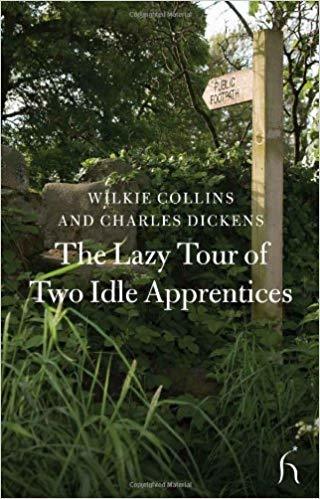

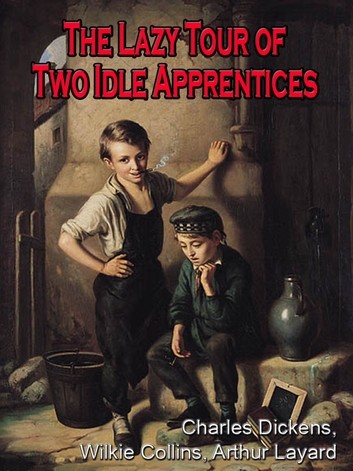
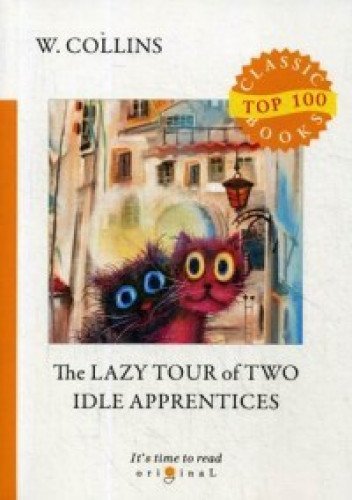
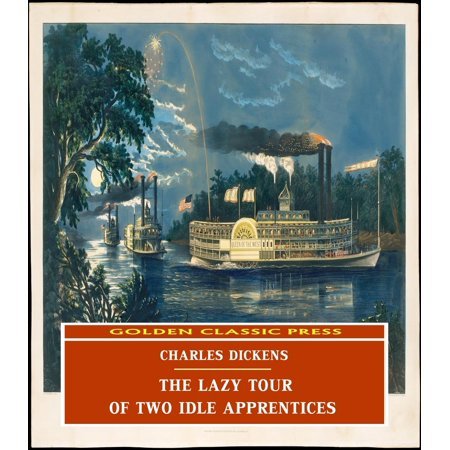


I am facing the rather difficult task of summarizing the first three chapters of The Lazy Tour of Two Idle Apprentices, whose difficulty lies in there not being a lot to be summarized because the two writers are not really building up anything in the way of a plot. Starting out, one could ask oneself the question: How do you write a book with somebody else? Is not the writing of a book one of the most personal, introspective and lonely occupations a person can apply themselves to? Then how did Dickens and Collins set to work? Did they say, “Okay, I am writing the first three chapters, and the last two are your job?” Or, “Whenever our characters are in conversation, I am writing my part and you are writing yours.” Or the other way around? Did they sit together and exchange ideas? If I remember correctly, Chapter 3 sees them for some time in their room in Allonby, where there is not much else to do, and write on their travelogue, but we don’t get any information of how they actually organize their work.
So, the reader has the pleasure to guess which of the two writers wrote what. Saying this, I must add that I strongly suspect that most of what I am going to summarize was written by Collins. When the moment comes, I’ll explain my guess.
At the beginning of the short travelogue, we find our two friends Mr. Francis Goodchild and Mr. Thomas Idle on the point of taking a break from “Lady Literature” and starting an excursion into the North, to be more precise, into Cumbria. Both our gentlemen see themselves as lazy but while Mr. Idle is lazy in the sense of trying to avoid all sorts of activity as such, Mr. Goodchild sees laziness as activity that is not linked with any ulterior purpose. So, climbing a mountain just for the sake of climbing a mountain is laziness, in his eyes. You can probably already guess which of the two gentlemen is Charles Dickens.
The first chapter finds our heroes’ two definitions of laziness jar quite soon: While Goodchild actually thought of hiking the whole way into Cumbria, Mr. Idle prevails eventually with his idea, viz. going by train, where you can enjoy the scenery from through the window instead of having to conquer it on foot. They have their first stop at Carlisle, where nothing really noteworthy occurs, and then go on to a little town near Carrock Fell, a hill in the Lake District. Mr. Goodchild has already started worrying that he may not be idle enough because he has not done anything lately, and that’s why soon after their arrival they hire their landlord as a guide and start their excursion to Carrock Fell. There are several things that make the reader wonder, however. For a start, why do they not wait for better weather but begin their mountain adventure in the midst of continuous rain? Mr. Idle, who brings up the rear for most of the excursion, morosely trundling behind the two other men, finds that his clothes are soaked with rain after a little while. Was there no way to protect oneself from rain back then? For example woollen capes? Apart from that, once they have reached the top, for whatever reason they cannot simply go back down the same way but have to find a suitable path for their descent, which is not too easy because of the fog settling very quickly. Here it shows that the landlord himself is not overly familiar with the place, since his last visit to it was back several years. Why do they pick such a man as their guide? It is, of course, Mr. Goodchild who gets a compass from out of his pocket, but for some reason, the compass breaks and they are left none the wise. It is quite nice, however, how Mr. Idle – from whose perspective most of the story is told – comments on the gloomy and lacklustre situation:
To make matters worse, during their quasi-blindfold journey down, Mr. Idle also sprains his ankle, and since it is obvious that he cannot be left behind, his friend actually has to prop him up for the rest of the way. It is after walking for a time through the fog that they realize that they have actually completed their descent.
I don’t know about you, but I must say that I wholeheartedly support Mr. Idle, not on his way down Carrock Fell, but in his conception of true laziness. Whenever I can sit somewhere, I prefer doing so, preferably with a book and a cup of coffee, to walking about. While the first few pages were a bit slow, I really enjoyed Mr. Idle’s ironic remarks about that mountain tour, although I would probably not have enjoyed him as a partner in that enterprise, had I ever undertaken it.